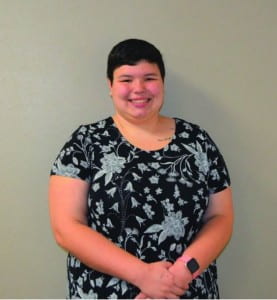The University of Wisconsin-Green Bay received approval from the UW Board of Regents today (August 24, 2018) to move ahead in offering a prelicensure Bachelor of Science in Nursing (BSN) program, paving the way for students to begin in fall 2020. The program will expand UW-Green Bay’s ability to fulfill unmet student demand for a high-quality BSN degree at an affordable tuition cost. According to UW-Green Bay’s Susan Gallagher-Lepak, dean of the College of Health, Education and Social Welfare, the proposed program will complement the University’s existing nursing programs, including the accredited BSN Completion program (currently offered by UW-Green Bay, on campus, collaboratively with other UW institutions in Wisconsin via distance education, and nationally via distance methods), NURSE 1-2-1 program and graduate program in nursing (leadership focus).
“We’ve received many positive comments about this new program from employers of nurses, such as hospitals, insurance companies and public health agencies,” offered Gallagher-Lepak. “Leaders at healthcare organizations have indicated that they will make clinical spots available to UW-Green Bay nursing students.”
Strong Support and High Demand
The University is receiving strong support for this program from many constituent groups within the region, including the UW-Green Bay Chancellor’s Council of Trustees Program and Initiatives Advisory Committee. Leaders of healthcare organizations in the community strongly support this program as a means to increase the number of BSN-prepared nursing graduates in Wisconsin.
“Nursing is the largest workforce in healthcare,” affirms Paula Hafeman, Chief Nurse Executive, Hospital Sisters Health System-Eastern Wisconsin. “According to a 2016 Wisconsin Center for Nursing report, it is projected that we will need more than 20,000 new registered nurses each year in Wisconsin to meet healthcare needs. More than 26,000 Wisconsin nurses will retire in the next 10 years alone. When you consider the need, and fact that healthcare continues to increase in complexity with advanced technology, treatments and an aging population, more healthcare providers are necessary. Wisconsin graduates 3,000 nurses each year. We need to support increasing nursing programs throughout Wisconsin.”
Nursing Shortage is Statewide
Of the approximately 3,000 new nurses per year (Wisconsin Center for Nursing, 2015), 55% earn baccalaureate degrees and the remainder earn associate degrees. Employers are increasingly requiring nurses to have a BSN degree (versus an associate degree in nursing) in Wisconsin and nationally.
Student demand for a nursing program at UW-Green Bay, specifically, is very high. Approximately 300 students apply to UW-Green Bay as pre-nursing majors each year. Because UW-Green Bay, until now, did not offer a prelicensure BSN, potential new freshmen choose not to enroll at UW-Green Bay, and current students who want to pursue a nursing major transfer to public, private or technical nursing programs. Further, existing BSN programs within the UW System are unable to meet student demand. Approximately 50-80% of qualified applicants to baccalaureate nursing programs are denied admission to UW System Nursing Schools, primarily due to capacity issues (Young et al., 2016). This is consistent with national trends, according to the American Association of Colleges of Nursing (AACN).
Chair of Nursing and Associate Professor, Christine Vandenhouten, said the program would provide regional opportunities that haven’t previously existed. “While UW-Green Bay is well-positioned to support a prelicensure nursing program, we look forward to working with the outstanding liberal arts and science faculty, both on the Green Bay campus and also our new branch-campus partners in Marinette, Manitowoc and Sheboygan. We expect strong interest from students taking their pre-nursing courses at all four campuses prior to applying to the UW-Green Bay prelicensure program.”
Students can apply to UW-Green Bay in pre-nursing for fall 2019. The first cohort accepted into the prelicensure program will begin in fall 2020. Didactic, skills and clinical courses in the program will prepare students for entry-level professional nursing practice in various areas. Nurses work in a wide array of settings, including hospitals and long-term care facilities, clinics and outpatient facilities, community centers, homes (homecare), schools, camps and businesses.



